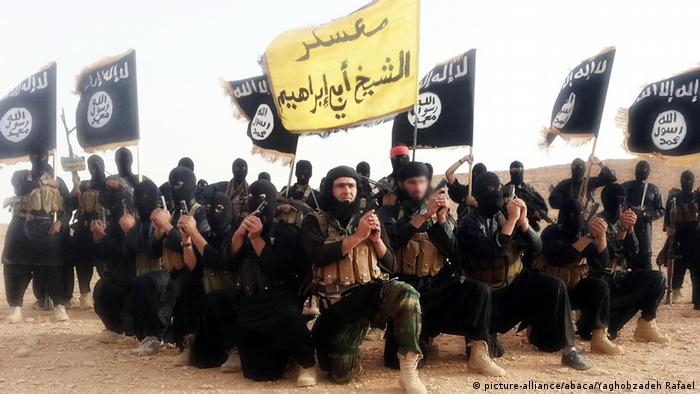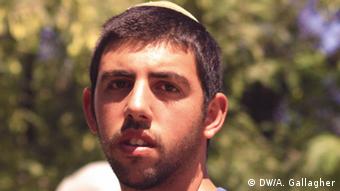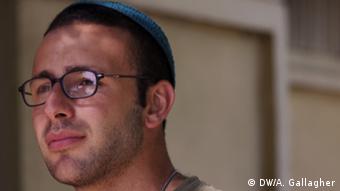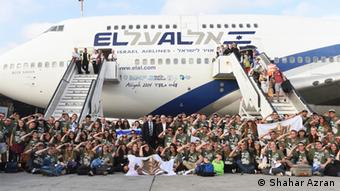US recruits join foreign forces to find acceptance
Young Americans are opting out of the US military and joining foreign forces. The Israeli army recruited over 100 Americans during the war against Hamas, while others are being lured to join extremist groups.
As Israel's Prime Minister Benjamin Netanyahu used the UN stage to launch a blistering attack on those alleging that his forces committed war crimes during the war against Hamas, whom he compared to "Islamic State" fighters, those accusations - if proven - could also affect foreign soldiers. During the war over 100 Americans came into the country to join the Israeli army and, in a few months time, they will be officially drafted as soldiers.
Jason Kraizler, a 22-year old from New Jersey, has Jewish parents and he grew up practicing Judaism, attending synagogues and observing Jewish holidays. He doesn't consider himself religious now, but follows Jewish traditions such as wearing a Jewish Kippah and observing the Sabbath.
Kraizler believes Israel needed to bomb Hamas in order to defend itself. Concerning war crime accusations, Kraizler says, "What are they [Israelis] supposed to do? As sad as it is for the other side, Hamas uses human shields," he said. He says he "doesn't worry," about war crimes. "I know what we do is right, I stand with Israel."
And he's not alone. Indeed, there are currently about 2,000 Americans serving in the Israeli military.
Fighting for the "homeland"
Eli Ezer First is 20-years old, with a Jewish background, raised in upstate New York. He spent time at a university in Israel before claiming his birthright and joining the military. Like Kraizler, First is confident his faith in Judaism means everything and it's the most compelling reason he says he should be in the military, defending what he calls the "homeland."
He believes not all Muslims are terrorists, but "extreme Islam" is dangerous to Israel and needs to be stopped. First is applying to be part of a unit which only works in the West Bank, which, he says, belongs to Israel and therefore the settlements are justified.
An Israeli military spokesman turned down a request to interview an active-duty American Israeli soldier who went into Gaza. Israeli officials said soldiers were hesitant to talk because they did not want to be compared to extremist militants, due to ongoing investigations into alleged war crimes.
But on the condition of anonymity, one soldier did speak out.
War crimes?
In the interview he admitted he came from a rather unique background - as an American Israeli from a Muslim family. He said serving with the Israeli army was more about being caught up in a lifestyle of wanting to live in Israel. He never thought he would see war, but spent a short stint in Gaza during the summer.
"I wish I could believe the world would do something about Hamas," he said, but in his view, it's the Israelis who are constantly fighting them with no help from the US or other western countries. But it doesn't negate his compassion for the Palestinians and he says he doesn't like the way the Israelis "blockaded Gaza." He believes an investigation into potential Israeli war crimes is a fair assessment as long as Hamas is investigated too and other independent authorities conduct investigations.
He says as an American in the Israeli army he isn't personally worried about war crime accusations because, "I committed no crime," but he is aware that not everyone follows the law and some "just hate Arabs." He has seen a "minority of colleagues try and find their next target," but does not know of any direct violations. He wishes the army would use their weapons to "maim" more than "kill," but he says, "I guess killing is the norm."
Extremism under a microscope
Americans joining a military now accused of war crimes comes at a time when Americans are also in the spotlight for joining extremist groups in Syria and Iraq. US officials say there are nearly three times more Americans fighting in extremist groups than originally estimated.
In a recent op-ed piece in the Washington Post, journalist and writer Michael Muhammed Knight wrote that he was the "jihadi that never was." His article focused on his influences in the 1980s which lead him to Islam and a radicalization which made him want to take up arms with Chechen rebels fighting for their home turf in the 1990s, though he says, he never did.
He purports, in the article, that the American attitude is to fight against "oppression and protect the safety and dignity of others," and that it's a very "American thing to do" to want to fly across the globe and get involved in "freedom struggles."
Knight told DW that the autobiography of Malcolm X "transformed" his life. His mother drove him to the Mosque and watched his conversion to Islam. When he studied under Pakistani teachers at the Faisal Mosque in Islamabad, Knight says they never taught him jihad, rather his ideas came from writings from Ayatollah Khomeini, Iran's revolutionary leader and others who wrote about defending Islam.
Nevertheless, a desire to fight did not propel him toward the US military because he says he saw them "as the enemy of freedom, justice, and equality."
"Maybe the Islamic State," Knight says, "is trying to deliver justice as they see it."
The anonymous American-Israeli soldier DW talked to said he had Muslim friends, who, while he was joining the Israeli military, were headed to Syria to fight with rebel and extremist groups. They cut off all contact with him, but he says he believes "money is the factor over belief," and says, "they were paid to 'go Jihadi,'" rather than having a strong ideology which they claimed to follow. Then he added, hesitantly, "Jihadis…remind me of Zionists going to Israel to serve."
Finding a home
It seems Americans are turning to foreign soil to fight, finding meaning, belonging and acceptance.
Dr. Yael Warshel, Assistant Professor and Researcher of Middle Eastern Conflict associated at U.C.L.A., says the "sense of community may not be as readily present or obvious in the way joining an overseas community is." Warshel says that Jews and Muslims who join foreign entities "are both numerical minorities in the US," and young people in particular are drawn to want "to effect change" in which they identify with something giving them a better "avenue for becoming part of something bigger than themselves."
But when former Israeli Americans return to the US after their military service, they will be treated much differently than those who wish to return, tired of fighting with extremist groups. The former will be welcomed and commended and accepted by family and friends, while the latter will likely be arrested, imprisoned and interrogated with little chance of returning to an American way of life. dw de






No comments:
Post a Comment